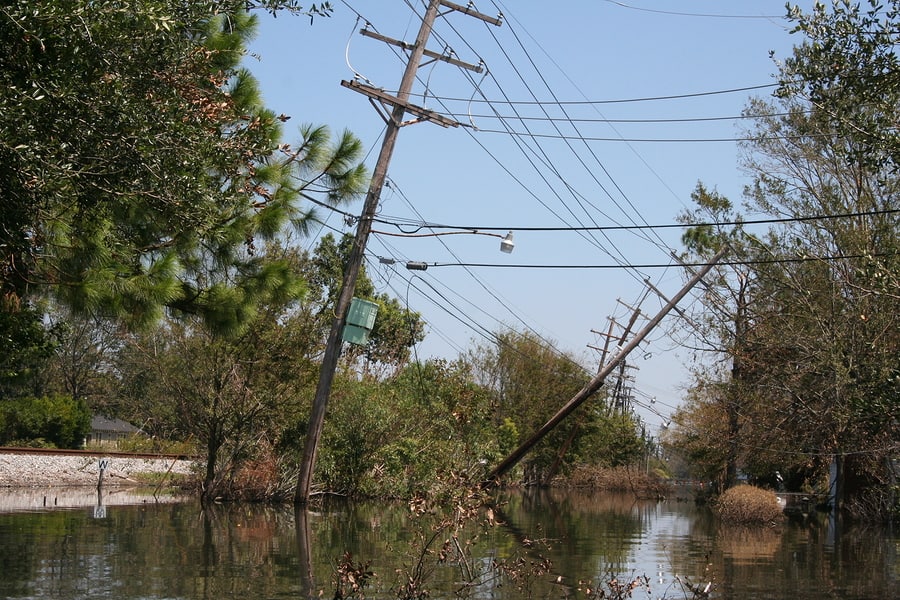The season for Tropical Storms and Hurricanes are upon us. Hurricane Harvey dropped more than 50 inches of rain in Houston and went toward Louisiana, which was hit hard by Hurricane Katrina in 2005. This was the most rain ever recorded in the contiguous U.S. from a hurricane. Homeowners across Texas will soon be facing the challenges of re-building their homes from scratch.
In addition, Hurricane Irma is one of the strongest storms ever recorded in the Atlantic. It has already caused devastating effects in the Caribbean and is expected to hit Florida soon. According to Governor Scott, this storm is already larger and stronger than Hurricane Andrew which caused extensive damage to Floridians.
During this time, for residents of hurricane-hit areas, it’s important to know the difference between a public adjuster and a carrier’s claims’ adjuster. Public adjusters are claims handlers who advocate on behalf of the consumer, while negotiating and appraising the consumer’s insurance claim. What we expect to see happening across Texas and elsewhere is that some public adjusters (along with some nefarious attorneys) will persuade homeowners to give up their insurance rights (also known as, “Assignment of Benefits”).
“Assignment of Benefits” is a legal tool that allows repairs made by contractor’s/vendors to receive payment from insurance companies for work they provide at a policyholder’s home, without the homeowner having to pay money upfront, says Michael Carlson, president of the Personal Insurance Federation of Florida.
“However, in the past decade, unscrupulous trial lawyers and vendors have taken advantage of the AOB to take control of a homeowner’s policy, and then inflate the scope of work and the cost of the claim, then turning around and suing the insurance company if they refuse to pay these inflated bills,” Carlson says.
This is a problem for all residents because, as more fraudulent claims are submitted to insurance companies — insurance rates go up.
Here are a few tips for property owners to avoid being scammed during hurricane season:
Call your insurance carrier first. Once you’ve checked their references and license, you’re not done yet. We recommend that before you have any work done on your property, contact your insurance carrier. They are the experts on the claim and know your policy.
Beware of unlicensed contractors. We expect an uptick of unlicensed contractors to be descending upon Houston and other storm-hit areas, from even from outside of the state. Be sure to check for out of state license plates. Unlicensed activity happens when a person doesn’t have a license by the state to perform work. These contractors will perform shoddy work or will just take your money and disappear. If you’re approached by a contractor, double-check references and their license.
Double-check. Before you get someone to do work on your property, check for references and verify their licensing. If something seems off — trust your gut. It probably is.
Beware of storm chasers. These are people who move throughout a storm-damaged area, going door-to-door, asking if they can go on your roof and check for any storm damage (even if the storm was miles away from you). Make sure you specifically look for out of state license plates, as they too travel from outside of the state. Then, they’ll create a bogus claim for damages that didn’t exist. For example, some use a dime or nickel to make an impression, which appears as hail damage. Others will lift shingles to make it appear as wind damage. Our advice: Do not let unsolicited people on your roof or on your property.
Understand water remediation. Water damage remediation service is the process of cleaning, drying, sanitizing and repairing any structural damage caused by water. After a hurricane, restoration companies will come out to homes and clean up the mess to try to help save homes from further damage. Be wary. In times of stress, you might quickly make a decision to get your home cleaned up, but some water remediation companies will charge extremely high fees and insist on doing the work immediately (a red flag) or a verbal contract (another red flag). Before picking a water restoration company, get at least three quotes.
Curious to find out more? Here’s our blog that explores lessons learned from catastrophe fraud.

